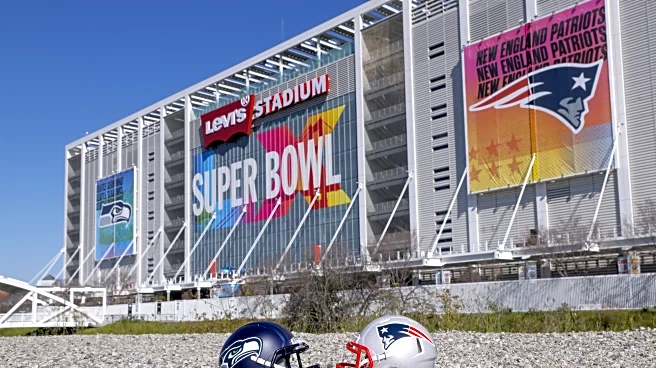Rapid Read • 9 min read
Tesla has released an update to its Full Self Driving (FSD) Supervised software, version V12.6.3, which aims to enhance the accuracy and performance of its autonomous driving capabilities. The update includes improvements in navigation and driving precision, such as better lane-keeping and intersection handling. However, there is growing concern among Tesla owners regarding the longevity of software support for older models. As newer Tesla vehicles are equipped with advanced hardware, including L4 computers and improved cameras, questions arise about whether Tesla will continue to maintain the FSD software on older cars, such as the 2019 Model 3, which features L3 hardware. This issue is reminiscent of technology companies discontinuing software updates for older devices, raising concerns about the future functionality of these vehicles.
AD
The ongoing development and updates to Tesla's FSD software are crucial for the company's vision of achieving full automation in its vehicles. However, the potential discontinuation of software support for older models could impact a significant number of Tesla owners who rely on these updates for improved driving experiences. This situation highlights the broader challenge faced by technology companies in balancing innovation with customer support for legacy products. If Tesla shifts its focus to newer models, owners of older vehicles may face limitations in their cars' autonomous capabilities, potentially affecting resale values and customer satisfaction. The issue underscores the importance of sustainable software support in the automotive industry, where technological advancements are rapidly evolving.
Tesla is expected to continue refining its FSD software, with future updates likely to address existing faults and enhance driving performance. The company may also need to clarify its long-term strategy for supporting older models, especially as it introduces vehicles with more advanced hardware. Stakeholders, including Tesla owners and industry analysts, will be closely monitoring the company's approach to software maintenance and its implications for vehicle automation. Additionally, Tesla's commitment to fulfilling its promise of full automation for all hardware levels remains a key area of interest, as it could influence consumer trust and market dynamics.
The ethical and legal dimensions of autonomous driving technology are significant, as they involve safety standards and regulatory compliance. Tesla's approach to maintaining software support for older models may also reflect broader industry trends in managing technological obsolescence. The company's decisions could set precedents for how automakers handle software updates and customer expectations in the era of smart vehicles. Furthermore, the evolution of Tesla's FSD software may contribute to discussions on the future of transportation and the role of artificial intelligence in driving innovation.
AD
More Stories You Might Enjoy












